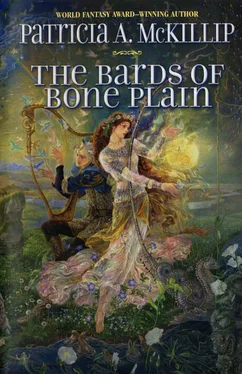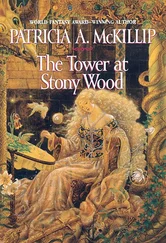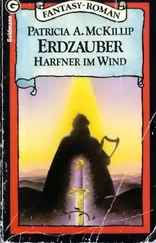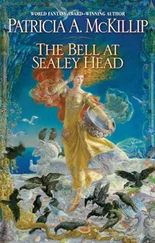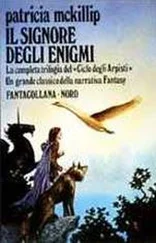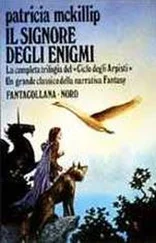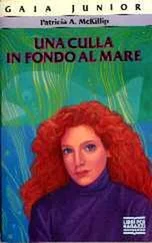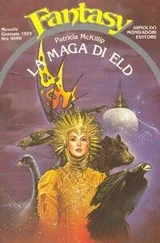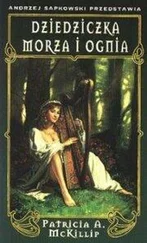“No doubt. Surely your father’s library—”
The smile faded. “My father doesn’t keep what I want to know,” Phelan answered restively. “He gets it out of the house, buries it in someone else’s shelves. Last night in the cab—”
“Yes.”
“Things kept fragmenting in my head. I wanted to tell you something, but I couldn’t sustain a coherent thought. Now they’re piecing themselves back together.”
“What thoughts?”
He frowned, concentrating. “When I was with my father in the Merry Rampion, he told me details about these books that he said he had never read.” He shook his head abruptly, then closed his eyes tightly a moment as though to quiet a sudden welter of pain. “He must be mistaken; his brain must be a sieve by now—”
“Last night you said it is a morass. You can’t have it both ways.”
He smiled, and pleaded, “Please don’t interrupt, Princess. My own brain is a rotting fishing net; things keep getting away from me. But I can’t stop thinking about that moment in the Merry Rampion when I tried to distract my father to keep him from chasing after Kelda. I went back and forth through these books with a jeweler’s eyepiece, and—”
“Very weighty tomes,” she said, impressed. “What are they?”
“The school’s household records. They go back to the very first year that Declan built his school. Nobody ever reads them. They aren’t even kept in the archives. Bayley Wren hides them up in the tower. Wren. That’s another thing—”
“Try,” she begged, “to keep to one thought at a time. That’s all I’m used to in my line of work.”
“This is the same thought, I promise. My father knew the name of the first school steward though he said he hadn’t read the records.”
“Surely that’s not uncommon knowledge, with everybody doing papers about everything.”
“And he knew about the tower falling then, in that first year. And that Salix was a woman—”
Beatrice closed her eyes, opened them again, hastily, as the steam tram chugged past. “Salix.”
“I thought she was a man; my father said I was wrong. The school steward never says one way or the other. How would my father have known that?” Beatrice opened her mouth. “And there’s the third coffin—”
“Coffin?”
“That Nairn would have been buried in after he was killed by the falling tower stones. But nobody ever found his body. So the coffin became accounts returned.”
Beatrice turned onto the school grounds, pulled into the paved area where the steam trams turned around, and parked. “I’m not,” she said apologetically, “entirely understanding this, though I know it is very important to you.”
“Well, it would certainly explain a few things.”
“I’m sure it would. I couldn’t with any degree of certainty tell you what those things might be. Perhaps your father read different books about the first year of the school? Got his facts somewhere else?” She waited. He had turned to gaze at the oak grove, pursuing his own perplexing vision. “Phelan? What’s on your mind?”
“Always,” he breathed. “Always my father ... It’s impossible. But it would explain ... I need to know what happened at that first bardic competition. And I need to know where Kelda came from.”
“Grishold,” she said, but again without any degree of certainty. “He speaks the language of the Circle of Days ... Is that common knowledge in Grishold?”
Phelan turned his head abruptly, his eyes, heavy and feverish, clinging to her. “You recognized it last night.”
“So did your father.” Her voice sounded faint, distant; she felt the imperative intensity of his gaze, searching, waiting. “Master Burley said no one had ever been able to translate it beyond— beyond—what the words say into the secrets they conceal. Phelan, what exactly are you thinking?”
“That I need to finish my research on Nairn as soon as possible. Look.” He loosed her eyes finally, nodded toward the trees, where a circle of students sat around the dark-haired harper, in the shadows of the ancient oak.
“Kelda,” the princess breathed.
Phelan looked at her again, his face colorless, harrowed with light, his mouth clamped tight. She saw what he was not saying: Zoe in the transfixed circle around Kelda, listening to him play.
On the third day of the bardic competition, the tower blew apart, and Nairn disappeared again from history.
Both events are transformed into accounts rendered or received in the steward’s records. Dower Ren himself makes an appearance as an account rendered for the wounds he suffered when the roof and the battlement stones crashed down into his chambers; he gives his shattered inkpot more mention than he does himself. Two students were killed by the broken tower; one vanished. The names of the two sent home in their coffins appear in their own families’ household records, and in chronicles of the period. They had both heard Declan play during King Oroh’s visits to his nobles and had left their comfortable homes to meet their fates in the school on the hill.
The third student, Nairn, seems to have been missed by no one, at least for a couple of centuries, except for some sharp-eyed bards and minstrels, who had glimpsed something more on the plain than is anywhere recorded outside of poetry.
The foremost question the historian must ask, in attempting to understand the events of the third day within the rigorous boundaries of the field is: What did those on the plain actually see?
The household records of Dower Ren deal only with the after-math of the day, and they are terse to the extreme. Before then, when the two bards, Welkin and Nairn, were the only ones left to compete for the highest honor in the realm, we must explore other sources. Like the steward, Declan himself was mute about that last, intense struggle between musicians. His comments come later, in a letter to King Oroh:
“... we send you the best the land has left to offer, with my hope that, in the following year or two, I might again find one of such gifts to which you are accustomed in your bard, and so proceed with the training.” That’s all. He makes no reference either to his student, in whom he had placed such hope, or in the harper out of nowhere who challenged him. What happened to Welkin, at the end of the day? Why did one or the other not claim victory? Who knows?
Declan, of all, might have, but he will not say.
When we look through the records of the court chroniclers, busily taking notes on the plain, we find odd, conflicting comments about the end of the competition. Lord Grishold’s chronicler, Viruh Staid, confesses to a peculiar lapse of attention. He flirts with a bard’s wife; he wanders down to the river to relieve himself among the trees—whatever he found to do, it seems astonishing and highly suspicious that he chooses to do it in the middle of the final songs of the competition.
His disclaimer makes more sense in light of King Oroh’s own chronicler’s mind-boggling description: “It seemed to me that the wind itself grew very old as the harpers played. The moon grew full, though it was scarce past half when it rose. My heart overspilled itself like a seething cauldron with wonder. The very stones within them turned and turned and the stones sang ... Such was my dream ... Then the dream blew into fragments. I woke, and the competition was at an end.”
Others, writing letters or descriptions later in the calm of their own chambers, were equally nebulous about how the great event ended. They barely comment about the broken tower, as though that was the least of their memories. One remembers following the scent of an enormous cauldron, and how he craved the “heady broth” so much that he forgot to listen to the music, but no one offered him any. Another complains that an ill-chosen mushroom must have clouded his memory, for what he does remember of the final song could never have happened. And so on.
Читать дальше
